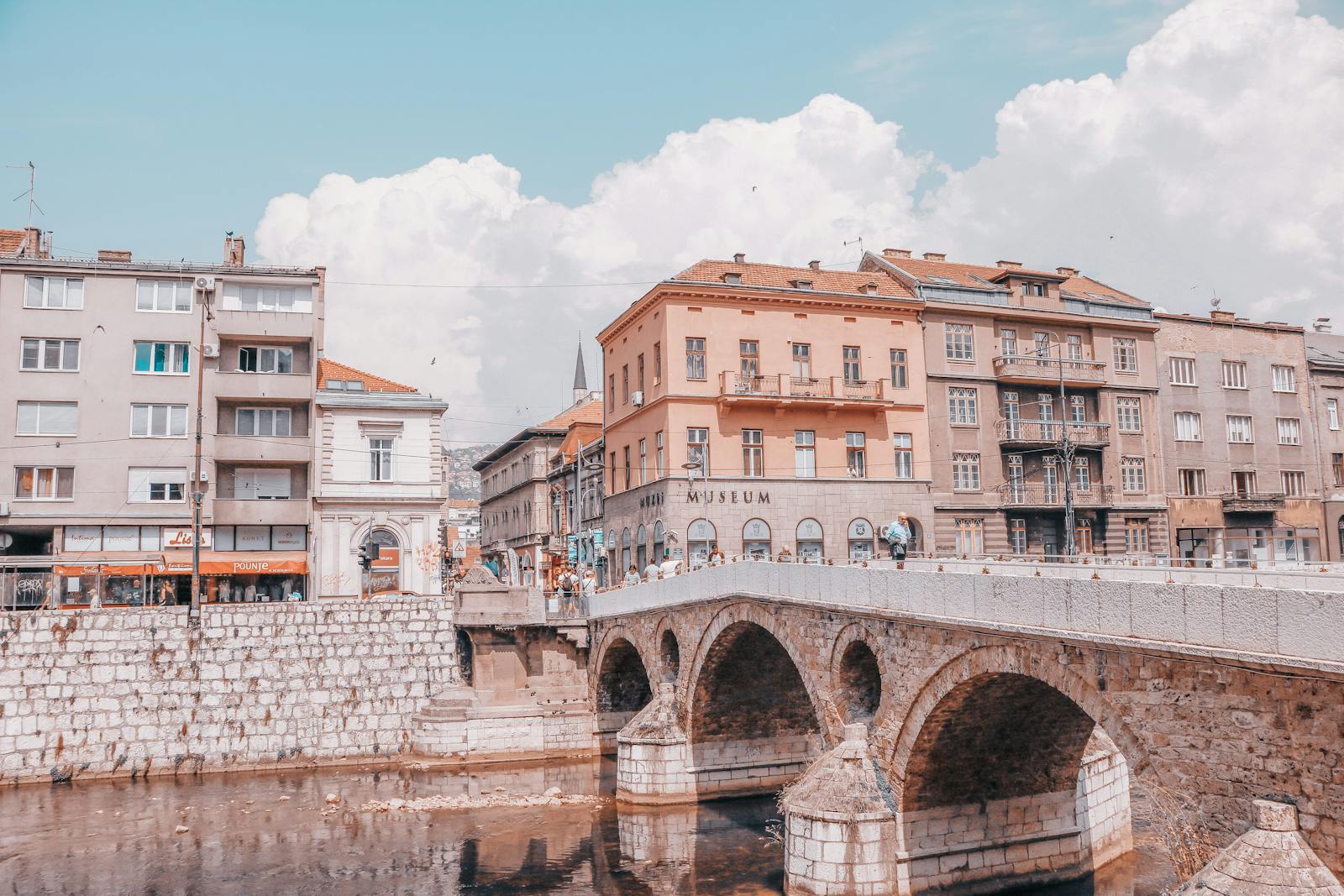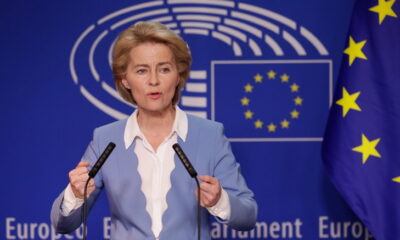Politics
The Role and Importance of the European Parliament in Today’s World
The European Parliament plays a crucial role in shaping the future of Europe and the world. As the only directly elected institution of the European Union, it represents the voice of over 500 million citizens from all 27 member states. With its powers growing steadily over the years, the European Parliament is now one of the most influential bodies in the world, shaping policies and legislation that affect everything from trade and security to the environment and human rights. But what exactly is the role of the European Parliament, and why is it so important? In this article, we’ll explore the key functions of the European Parliament, its impact on global affairs, and why it matters to all of us, regardless of where we live. So, whether you’re a student of politics, a business owner, or simply a concerned citizen, read on to discover the vital role played by the European Parliament in today’s world.
History and evolution of the European Parliament
The European Parliament has its roots in the European Coal and Steel Community, which was established in the aftermath of World War II. The Community was founded with the aim of pooling the coal and steel resources of six European countries: Belgium, France, Germany, Italy, Luxembourg, and the Netherlands. The idea was to create a common market for these resources, which would help to promote economic cooperation and prevent future wars.
The European Parliament was established in 1952 as an advisory body to the High Authority of the European Coal and Steel Community. Initially, it was composed of just 78 members, who were appointed by the national parliaments of the six member states. However, over the years, the Parliament’s powers and responsibilities have steadily grown. In 1979, the Parliament was directly elected for the first time, with citizens of the member states casting their votes for the candidates of their choice. Today, the European Parliament has 705 members, who are elected every five years.
The role of the European Parliament in the European Union
The European Parliament is one of the three main institutions of the European Union, alongside the European Commission and the Council of the European Union. Its role is to represent the interests of the citizens of the EU, and to ensure that their voices are heard in the decision-making process.
One of the key functions of the European Parliament is to pass legislation. The Parliament has the power to initiate, amend, and veto legislation, and it plays a crucial role in the EU’s legislative process. In addition to passing laws, the Parliament also has the power to approve the EU’s budget, and to oversee the work of the other EU institutions.
Another important role of the European Parliament is to hold the other EU institutions to account. The Parliament has the power to question the European Commission and the Council of the EU, and to demand answers on a wide range of issues. This helps to ensure transparency and accountability in the EU’s decision-making process.
The importance of the European Parliament in shaping EU policies
The European Parliament has a significant impact on the policies and legislation of the European Union. As the only directly elected institution of the EU, it represents the voice of the people, and its decisions can have a profound impact on the lives of citizens across the continent.
One of the most important areas where the European Parliament has an impact is in the field of trade. The Parliament has the power to approve or reject international trade agreements, and it plays a crucial role in ensuring that these agreements are fair and transparent. In recent years, the Parliament has been particularly active in this area, rejecting the controversial ACTA agreement in 2012, and demanding greater transparency in negotiations for the TTIP agreement with the United States.
The European Parliament also plays an important role in shaping EU policy on issues such as the environment, human rights, and social justice. Through its legislative powers, the Parliament can help to ensure that these issues are given the attention they deserve, and that EU policies are aligned with the values and priorities of its citizens.
The European Parliament’s legislative process
The legislative process of the European Parliament is complex, but it is designed to ensure that all voices are heard and that decisions are made in a transparent and democratic manner.
The process begins with a proposal from the European Commission, which is then reviewed by the relevant parliamentary committee. The committee will then make amendments to the proposal, which are debated and voted on by the full Parliament. If the proposal is approved, it becomes law, and member states are required to implement it.
Throughout the legislative process, the European Parliament is required to consult with a wide range of stakeholders, including NGOs, businesses, and citizens. This helps to ensure that the legislation is informed by a broad range of perspectives and that it reflects the needs and concerns of all those affected by it.
The European Parliament’s role in ensuring transparency and accountability
One of the key roles of the European Parliament is to ensure that the other EU institutions are transparent and accountable in their decision-making. To this end, the Parliament has a number of mechanisms in place to oversee the work of the European Commission and the Council of the EU.
One of the most important of these mechanisms is the power of the Parliament to approve or reject the appointment of the European Commission. Before taking office, the Commission must be approved by the Parliament, which can reject the entire Commission or individual Commissioners if it deems them unsuitable.
In addition to this, the Parliament also has the power to conduct inquiries into the work of the other EU institutions. This can be a powerful tool for holding those institutions to account and ensuring that they are acting in the best interests of the citizens of the EU.
The European Parliament’s impact on individual citizens and member states
The decisions of the European Parliament can have a profound impact on the lives of individual citizens and member states. For example, EU legislation on issues such as consumer protection, environmental standards, and workers’ rights can have a significant impact on the everyday lives of citizens across the EU.
In addition to this, the European Parliament plays an important role in ensuring that member states adhere to EU law and meet their obligations under EU treaties. This helps to ensure that the EU operates as a cohesive and effective entity, with all member states working together towards common goals.
Challenges faced by the European Parliament
Despite its many achievements, the European Parliament faces a number of challenges in the years ahead. One of the biggest challenges is the rise of nationalist and populist movements across Europe, which have been critical of the EU and its institutions.
Another challenge is the ongoing debate over the future of the EU itself. Some have called for greater integration and a more federalist model of governance, while others have advocated for a looser, more intergovernmental approach.
Finally, the European Parliament must also grapple with the challenges posed by a rapidly changing world. Issues such as climate change, technological disruption, and geopolitical instability will require the EU to be agile and responsive in its decision-making.
Future of the European Parliament
Despite these challenges, the European Parliament remains a vital institution (next elections will be in June 2024) in the global political landscape. Its role in shaping the policies and legislation of the EU, and its commitment to transparency and accountability, make it a powerful force for good in the world.
Looking to the future, the European Parliament will need to continue to adapt and evolve in response to the changing needs of its citizens and the world at large. This will require a renewed commitment to democratic values, a willingness to embrace new technologies and ways of working, and a recognition of the importance of international cooperation in tackling the challenges of the 21st century.
Conclusion
The European Parliament is a vital institution that plays a crucial role in shaping the future of Europe and the world. Through its legislative powers, its oversight of the other EU institutions, and its commitment to transparency and accountability, the Parliament helps to ensure that the voices of the citizens of the EU are heard and that their interests are protected. Despite the challenges it faces, the European Parliament remains a beacon of hope and a powerful force for positive change in the world. As citizens of the EU and the wider world, we must all do our part to support and strengthen this vital institution, and to work towards a brighter future for all.
Politics
Critical Oversight: ODIHR Prepares for Local Elections in Bosnia and Herzegovina

SARAJEVO, 30 August 2024 – In a critical step toward upholding democratic standards, the Organization for Security and Co-operation in Europe (OSCE) Office for Democratic Institutions and Human Rights (ODIHR) has officially opened an election observation mission in Bosnia and Herzegovina for the upcoming local elections scheduled for 6 October 2024. This initiative follows an official invitation from the national authorities and the results of a needs assessment mission conducted in May.
Heading the mission is Corien Jonker, who will lead a core team of 11 international experts based in Sarajevo. In addition, the mission will deploy 20 long-term observers throughout the country starting on 6 September. To bolster the observation efforts further, ODIHR plans to request an additional 300 short-term observers, who are expected to arrive several days prior to election day.
The primary objective of the mission is to assess the elections’ compliance with OSCE commitments, international obligations, and standards for democratic elections, as well as with the national legislation of Bosnia and Herzegovina. Observers will meticulously monitor key aspects of the electoral process, which includes both offline and online campaign activities, the performance of the election administration at all levels, the implementation of election legislation, and the overall respect for fundamental freedoms.
A significant focus will also be placed on evaluating the work of public and private media during the election period and monitoring the resolution of any election disputes that may arise. Additionally, observers will assess the implementation of previous ODIHR recommendations related to electoral processes in the region.
Integral to the observation mission is the engagement with a diverse array of stakeholders. This includes meetings with national authorities, representatives of political parties, civil society organizations, media entities, and members of the international community. Such interactions will provide vital insights into the electoral environment and the challenges faced during the election period.
To keep the public informed, the ODIHR will release an interim report approximately two weeks before the elections, detailing the mission’s observations and activities up until that point. Following the elections, a statement of preliminary findings and conclusions will be presented at a press conference the day after the polling. A comprehensive final report assessing the entire election process, complete with recommendations for future improvements, will be published in the months following the elections.
As Bosnia and Herzegovina approaches these crucial local elections, the ODIHR’s commitment to monitoring and assessing the democratic process underscores the importance of transparency and accountability in fostering a robust electoral environment.
Politics
German MEP Dennis Radtke takes on influential role in the European Parliament

STRASBOURG/BRUSSELS/BERLIN/DÜSSELDORF/BOCHUM. Yesterday, Wednesday (17 July 2024), Dennis Radtke MEP from North Rhine-Westphalia (NRW) in Germany was confirmed as social policy spokesperson for the EPP Group in Strasbourg, where the European Parliament is being constituted this week.
“I am delighted to be able to continue to lead the EPP Group in the European Parliament’s Committee on Employment and Social Affairs (EMPL) and promote social policy issues,” said Dennis Radtke shortly after his election.
He also immediately formulated his clear ambition: “There is still a lot to do on the road to a more social Europe and we as the EPP Group want to play a leading role in this.”
According to the CDU politician, many projects have already been implemented: a European Minimum Wage, strengthening the rights of platform workers, social and climate funds and a European care strategy. “The great trust placed in me by my colleagues in the EPP Group motivates me strongly to continue actively working for a socially just Europe,” continued Radtke.
In his role as so-called coordinator of his political group, Dennis Radtke decides, for example, on the distribution of legislative and non-legislative reports and basically steers the work in the EMPL Committee.
One of Radtke’s next important projects for the new 10th parliamentary term of the European Parliament is to improve the protection of workers. “In its new mandate, the European Labour Authority (ELA) must be given every opportunity to enforce worker protection in the European Union, including across borders,” says the CDU politician.
Dennis Radtke is 45 years old, married and the father of two children. He comes from Wattenscheid (Bochum, Germany) and has been a member of the European Parliament since 2017. Radtke is a member of the Committees on Employment and Social Affairs (EMPL) and on the Environment, Public Health and Food Safety (ENVI).
The German CDU politician is President of the European Union of Christian Democratic Workers (EUCDW), Deputy Federal Chairman and North Rhine-Westphalian State Chairman of the Christian Democratic Workers’ Union (CDA), the CDU’s labour wing. At the CDA national conference on 14 and 15 September 2024 in Weimar (Thuringia), Dennis Radtke will run for the federal chairmanship of the CDA Germany in succession to Minister Karl-Josef Laumann MdL.
Politics
Roberta Metsola re-elected as President of the European Parliament

On Tuesday, MEPs re-elected Roberta Metsola (EPP, MT) as President of the European Parliament until 2027, with 562 votes in the first round.
Roberta Metsola won the election in the first round of voting, where she received an absolute majority of 562 votes cast out of 699 by secret paper ballot, among two candidates. She will continue to lead Parliament for the first two and a half years of the 10th legislative term.
Voting results
- Roberta Metsola (EPP, MT) 562
- Irene Montero (The Left, ES) 61
Total votes cast: 699
Blank or invalid votes: 76
Absolute majority needed: 312
Who is Roberta Metsola
Born in Malta in 1979, Roberta Metsola has been an MEP since 2013. She was elected First Vice-President in November 2020, and was Parliament’s acting President after President Sassoli passed away on 11 January 2022. On 18 January 2022, she was elected President for the second half of the 9th legislative term. She is the third female President of the European Parliament, after Simone Veil (1979-1982) and Nicole Fontaine (1999-2002).
Addressing the House after she was elected, President Metsola said: “Together, we must stand up for the politics of hope, for the dream that is Europe. I want people to recapture a sense of belief and enthusiasm for our project. A belief to make our shared space safer, fairer, more just and more equal. A belief that together we are stronger and we are better. A belief that ours is a Europe for all.”
A full version of the President’s address will soon be available on Parliament’s website.
-

 Sports6 days ago
Sports6 days agoOfficial: Juventus announces sixth purchase
-

 Health & Society6 days ago
Health & Society6 days agoThe intoxicated society
-

 Politics4 days ago
Politics4 days agoThe Russian patriarch to Putin: You are the first truly Orthodox president
-

 Sports5 days ago
Sports5 days agoBeautiful Juve: Vlahovic and youth rout Verona. Thiago Motta first
-

 Sports5 days ago
Sports5 days agoJuventus, Vlahovic: “Now we play a different game.”
-

 Health & Society2 days ago
Health & Society2 days ago7 Superfoods That Will Boost Your Fitness Results
-

 Politics2 days ago
Politics2 days agoStatement by President von der Leyen at the joint press conference with President Metsola following the European Parliament Plenary vote
-

 Sports6 days ago
Sports6 days agoNapoli rears its head again, Empoli pulls off a feat in Rome










